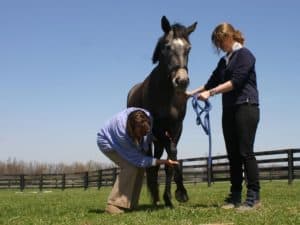EEE in Venezuela
- Topics: Article, Western Equine Encephalitis (WEE)
According to an April 26 ProMED report, Venezuela’s Animal Health Service, Ministry of Agriculture recently reported a case of Eastern equine encephalitis (EEE) in a horse from the district Bolivar in the state of Yaracauy. The case was originally detected during the week of March 21-27. Another suspected case reported during the week of Feb. 8-14 from the state of Barinas tested negative for EEE and Venezuelan equine encephalitis (VEE).
EEE, which is spread by the bites of infected mosquitoes, is endemic in the coastal regions of North America, throughout the Caribbean and Central America, and along the northeastern coast of South America. EEE, VEE, and Western equine encephalitis can cause severe neurological disease in horses and humans, although infection can be subclinical or mild.
Regional health authorities were encouraged to increase epidemiological surveillance (serology and entomology) for mosquito-borne disease.
ProMED reported that neurological disease is most severe in EEE infection, and in horses the case fatality rate might reach 50-90%. “Humans and equines are considered to be dead-end hosts for EEEV; the virus being maintained by several mosquito vectors through complex endemic and epidemic cycles in wild animals and birds,” the report said
Create a free account with TheHorse.com to view this content.
TheHorse.com is home to thousands of free articles about horse health care. In order to access some of our exclusive free content, you must be signed into TheHorse.com.
Start your free account today!
Already have an account?
and continue reading.

Written by:
The Horse Staff
Related Articles
Stay on top of the most recent Horse Health news with












